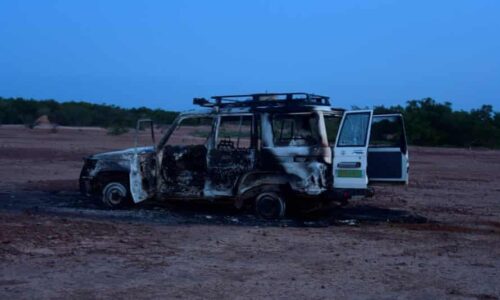
Islamic State terrorists claimed responsibility for the murder of French aid workers and their guides in Niger
The Islamic State extremist group has claimed responsibility for the murder of six French aid workers and their two local guides while they were visiting a nature reserve in the west African country of Niger.
The six French humanitarian workers, aged between 25 and 30, their guide and their driver were killed on 9 August in the Kouré national park, a wildlife haven 37 miles (60km) from Niger’s capital, Niamey.
In a statement, issued in the Isis publication al-Naba and authenticated by the US monitoring group SITE, the terrorist group said that the eight had been killed following their capture in a “blitz attack”.
It claimed that the attack was considered “a major security lapse” for France, which has a 5,100-strong force deployed in the Sahel region of west Africa to fight militant groups.
French anti-terrorism prosecutors have already said that the attack appeared to be a “premeditated” strike against westerners, while it was unclear whether the French aid workers and their NGO, the relief organisation Acted, were specifically targeted.
The nature reserve, which is famous for its giraffes, is a popular destination for weekend leisure trips by Niamey residents, including foreigners.
Attackers on motorbikes ambushed the group as they drove through the reserve, which is in an area considered safe by Niger’s government.
Images broadcast on France’s TF1 television channel showed the torched remains of a 4×4 vehicle peppered with bulletholes.
French investigators were sent to Niger after anti-terrorism prosecutors in Paris announced they had opened an inquiry.
The French president, Emmanuel Macron, has described the killings as “manifestly a terrorist attack” and said there would be repercussions.
Jihadist attacks have proliferated in the volatile south-western Tillaberi region of Niger, close to the borders of Mali and Burkina Faso. Islamic State is among numerous terrorist actors at large in the Sahel region, killing thousands of people and displacing millions in one of the world’s worst humanitarian crises.
Source: The Guardian





